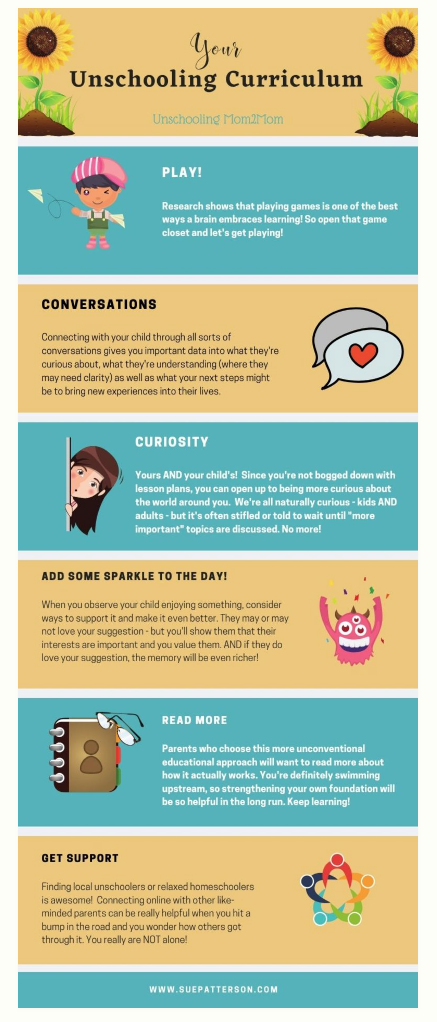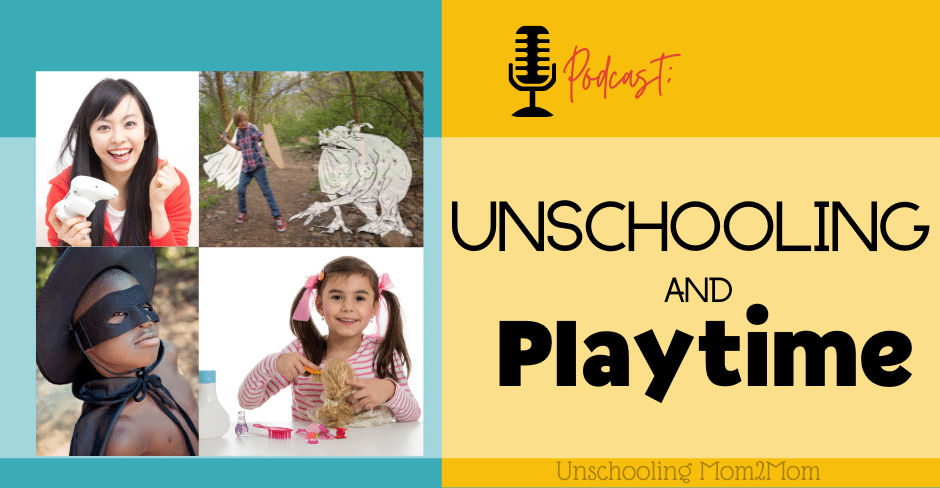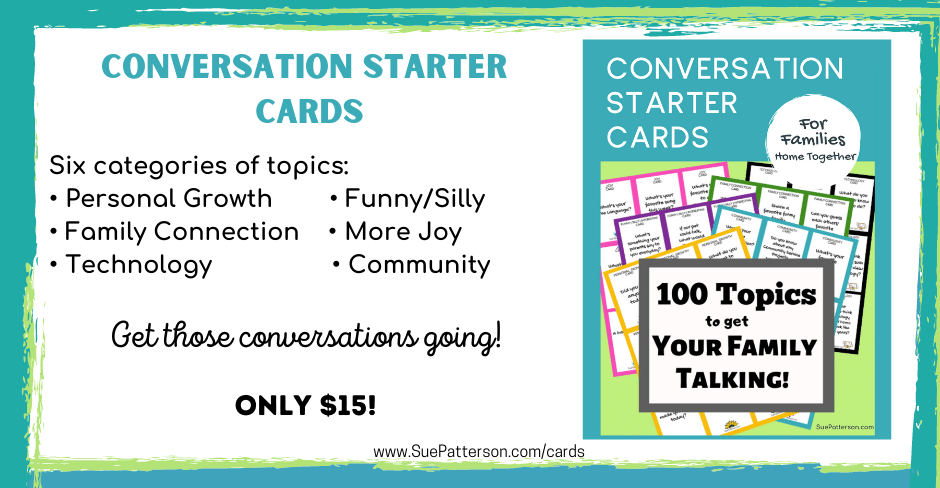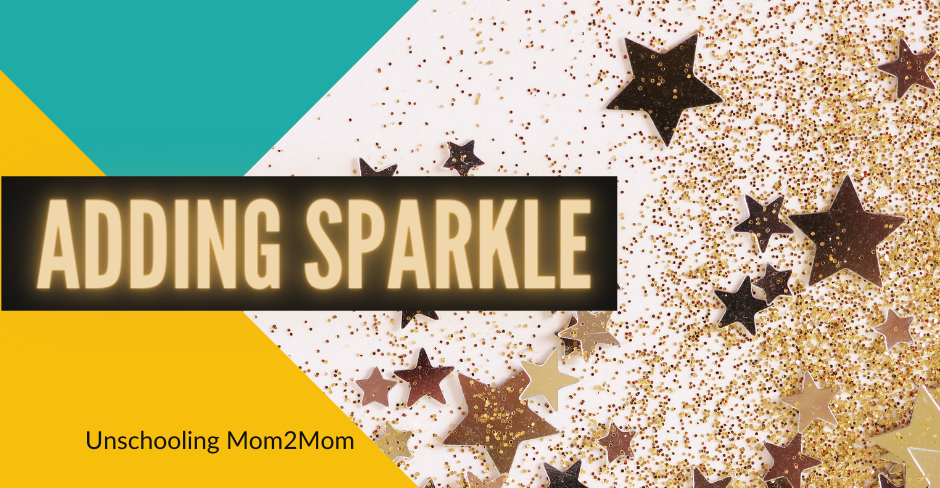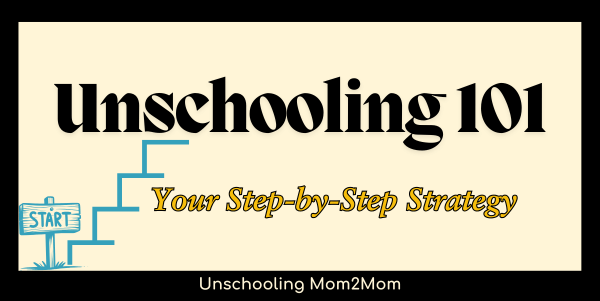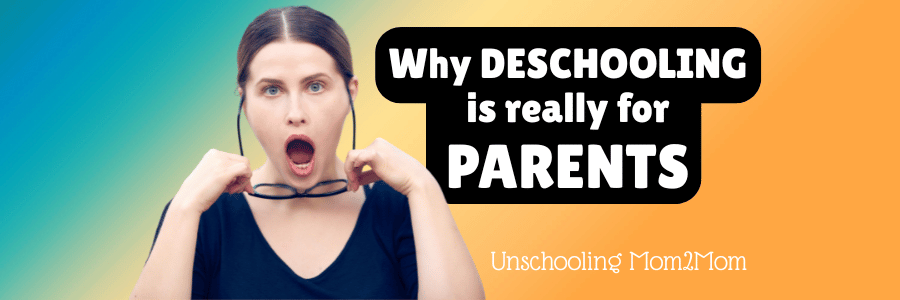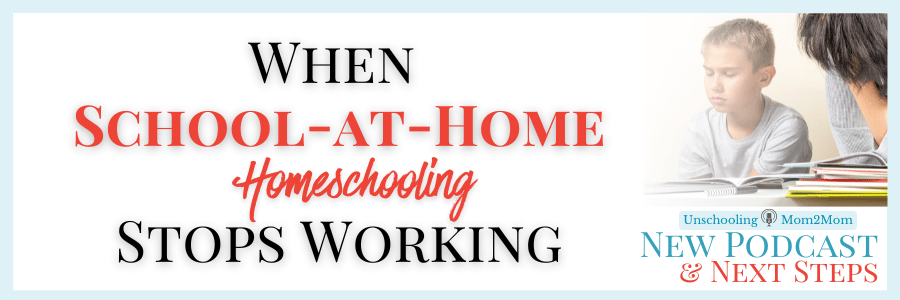Your Unschooling Curriculum
Some of us still have a lot of deschooling to do, right?
And even when we’ve done a lot of that, we might find that we really LIKE having “A Plan” when it comes to our kids’ education. We may be Big Planners in all areas of our lives, so making plans about something this important… that might be right up your alley!
People often wonder what they’ll do all day with the kids WITHOUT a curriculum, and they begin to look for or create SOME kind of plan. So I have a solution for you! I have created a skeleton structure for you to use as your unschooling curriculum. You get to decide how much or how little of it you do in any given day.
If you’re in any of my private coaching groups,
you’ll have access to a deeper dive on each of these 6 areas I want you to focus on.
But I’m going to give you the Six Unschooling Curriculum Topics here.
And no, they’re not related to subjects or even academics.
Don’t AVOID subjects if they weave in there naturally, but they aren’t the focus.
Actually, reading, math, history, science - all the “familiar” subjects WILL wind through it all pretty effortlessly. Because that’s the thing… subjects that are useful to the learner (all of us really) show up in the real world - the world your unschooled child is living in! Your child will move toward them and need them to DO the things they want to do.
Here’s the difference though!
With the school approach, the teacher pushes an unnatural balance of All.the.things a person could possibly need as an adult someday.
How much did YOU really retain? How much did you never use?
Unschoolers take the opposite approach. We start with the Learner - that’s the one who matters the most, since it’s their learning process after all.
The learner begins with wanting to DO something. Then they notice they need to gather some specific skills to pull that off. That’s where we’ll see relevant subjects pop up. And even better, because they’re IN CONTEXT, they’ll be more valuable to your little Learner and your child will remember the information. Instead of all the data that got left on the cutting room floor, so to speak, when schools tried to flood the students with all the potentially useful data they could need someday when they grow up.
This way, we start with the simple question,
“What do you need?”
And that’s what takes me to the The Plan. 😉
6 Unschooling Curriculum Topics
1. Play.
Research shows that playing games is one of the best ways a brain embraces learning. Think of all the big companies that are gamifying their customer’s experience - or even their employee’s experience. They wouldn’t do it if it didn’t produce better results.
I know some of you are going to say,
"Surely we can't play games or just chit chat all day long!"
I have two answers to this. On one hand, my answer is
"Why not?"
but on the other hand,
"You won't. It won’t happen like that."
Other things will pop up and need your attention or draw your child's attention and curiosity away from you. But these are all going to be clues about the inner workings of your child... what are their preferences? When you really begin to know these, you're able to connect in ways that will not only make your relationship with your child richer, but you'll know more confidently what your next steps should be. So… time to open that game closet and get playing with the kids!
2. Conversations.
This follows up on that same question about playing or chit-chatting with the kids all day. The idea and importance of Conversations is really important when you're unschooling. Connecting with your child through all sorts of conversations gives you important data into where their interests lie, what they’re understanding, where they may need clarity, as well as what your next steps might be to bring new experiences into their lives.
3. Curiosity.
I’m talking about YOURS and YOUR CHILD’s. Since you’re not bogged down with lesson plans, you can open up to being more curious about the world around you. We’re all naturally curious - kids and adults! But it’s often stifled when we’re told to wait until “more important topics” have been covered adequately. And who determines that? Not the learner.
4. Sparkle.
Adding a little sparkle to the day can do so much! It’s one of those things where you really get a “ROI” (Return on Investment - of time). When you observe your child enjoying something, consider ways to support it and make it even better. They may or may not love your suggestion - but you’ll show them that their interests are important and you value them. AND, if they do love your suggestion, the memory will be even richer.
I did another podcast last December about Adding a Little Sparkle.
You can listen to it here.
5. Parent Education.
Parents who choose this more unconventional educational approach will want to read more about how it actually works. You’re definitely swimming upstream, so strengthening your own foundation will be so helpful in the long run. Keep learning - articles, videos, podcasts, chatting - whatever style of gaining information works best for you.
Or get all the info you need in one course!
6. Get Support.
Finding local unschoolers or relaxed homeschoolers is awesome! Connecting online with other like-minded parents can be really helpful when you hit a bump in the road and you wonder how others got through it.
You really are NOT alone!
So if you’re going to create a truly individualized UNSCHOOLING curriculum, these are the threads to weave throughout your daily life experiences.
Here's my visual for you - what would an unschooling curriculum look like?
This!
